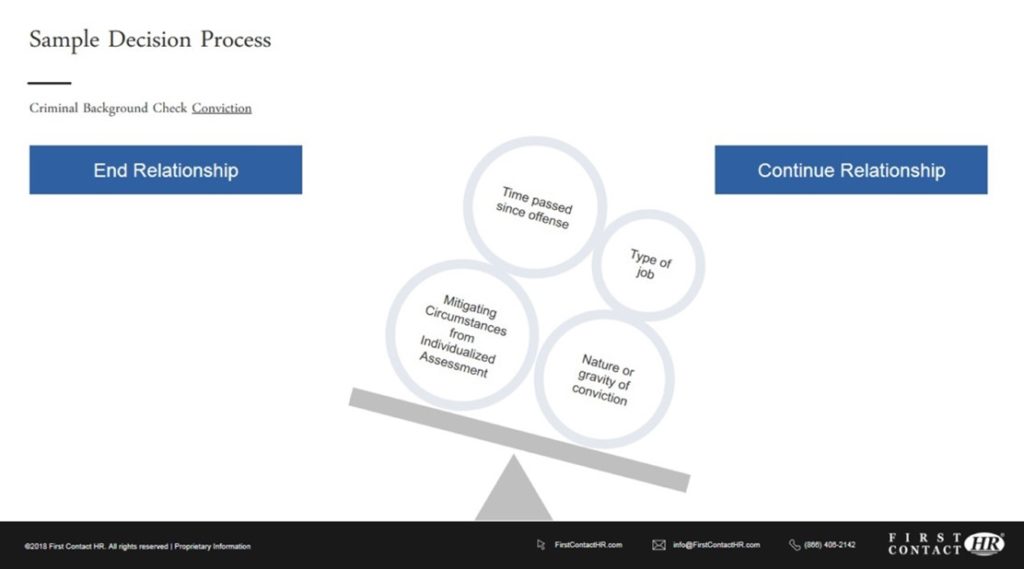
Employing formerly incarcerated individuals is not only an act of compassion but also an opportunity to explore a vast pool of untapped talent. Second chance hiring is the practice of hiring people with a criminal record and giving them a chance to rehabilitate themselves back into society, achieving a better life for themselves along the way. Several studies demonstrate that employing ex-offenders can substantially reduce recidivism. April has been celebrated as a second chance month since 2017 to establish the advantages employers can reap by hiring individuals who have overcome personal obstacles and are well-suited to contribute to the community.
Investing in Second Chances
Helping individuals with criminal records achieve their full potential benefits society and enhances economic opportunities. Ensuring that reformed convicts are hired is a proven strategy for reducing recidivism rates. Second Chance opportunities create a more diverse, productive workforce and help identify candidates who may offer skills and experience that can add significant value to your business.
Additionally, many correctional programs also focus on helping inmates develop and practice valuable employability skills during their time in prison. They are developed through foundational classroom training, vocational training, and other skill development training, contributing to a person’s ability, readiness, and confidence to find employment upon release. According to the Second Chance Business Coalition, 81% of leaders in human resources and 85% of business leaders agree that people with criminal records perform equally well or better than employees who do not have criminal records.
About a quarter of Americans have a criminal record, making up more than 78 million people. Barriers to reentry result in employers being unable to tap into this large segment of the qualified U.S. population. The following are some ways we can work together to create meaningful opportunities for people to reenter the workforce:
Clean Slate Laws
An arrest record, even one that didn’t result in a conviction, can be a lifelong barrier to opportunities. Launched in 2018, the clean slate initiative is a bipartisan resolution that systematically wipes off criminal records if a person remains crime-free. There is a low probability of applicants with a record getting hired because nine out of ten employers conduct background checks. The clean slate initiative is a positive step toward helping ex-offenders achieve a successful reentry. Employers should also refrain from considering arrest records when conducting background checks for employment purposes.
Broaden Employer Perspectives
The bottom line of your business benefits greatly from a diverse workforce. More companies are now hiring former offenders to help plug the labor shortage and tap more potential talent. Finding the right fit for the position is always ideal for ensuring loyalty and employee retention. Second chance hires have a lower turnover rate, which means companies can save time and resources on the hiring process.
Resources for Growth and Development
To lower recidivism rates, active efforts need to be made to equip those incarcerated with resources that will allow them to grow and develop skills that will ease their reentry process. Entrepreneurial training is one of the most recommended pieces of training that can help address the barriers to employment. Individual ventures do not have to be scrutinized or subjected to detailed background checks, so they are preferred over seeking employment opportunities. The Prison to Proprietorship Act was designed to foster entrepreneurial counseling and training in federal prisons as part of the disciplinary process. The law has not been enacted, but we can make collective efforts to highlight the importance of educational opportunities for those with a conviction record.
The white house has acknowledged the second chance month, resulting in a growing awareness among people and employers to destigmatize the notions associated with people with criminal convictions. However, more employers and communities across the nation need to build partnerships to hire and employ people who have served their time and returned to society.
Second Chances with First Contact HR
Inclusive hiring is the future of the modern workspace. As HR professionals, we know the importance of ensuring a productive and safe workspace for your employees. Hiring a convicted criminal may pose a greater risk of mishaps or damaging your reputation. It is crucial to keep an open mind and consider factors such as the nature of the crime, its relevance to the applicant’s position, and how long the individual has been out of prison.

Additionally, in response to an increased sense of fairness and sensitivity towards discrimination, there has been a growing consensus among some states and localities to evaluate job candidates based on their skill sets rather than their histories. Having a criminal conviction is just one factor that may not negate a candidate’s eligibility.
First Contact HR conducts thorough background checks to ensure that expanding the diversity of your workforce won’t negatively impact your business or employees. As we celebrate Second Chance Month, let’s go beyond the past and make active efforts to ensure that reentering individuals who have already served their debts and are committed to improving our community is welcomed back with open arms.

